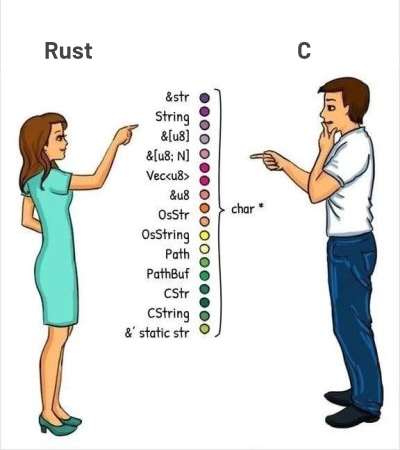Personally, I have nothing against the emergence of new programming languages. This is cool:
- the industry does not stand still
- competition allows existing languages to develop and borrow features from new ones
- developers have the opportunity to learn new things while avoiding burnout
- there is a choice for beginners
- there is a choice for specific tasks
But why do most people dislike the C language so much? But it remains the fastest among high-level languages. Who benefits from C being suppressed and attempts being made to replace him? I think there is only one answer - companies. Not developers. Developers are already reproducing the opinion imposed on them by the market. Under the influence of hype and the opinions of others, they form the idea that C is a useless language. And most importantly, oh my god, he's unsafe. Memory usage. But you as a programmer are (and must be) responsible for the code you write, not a language. And the one way not to do bugs - not doing them.
Personally, I also like the Nim language. Its performance is comparable to C, but its syntax and elegance are more modern.
And in general, I’m not against new languages, it’s a matter of taste. But when you learn a language, write in it for a while, and then realize that you are burning out 10 times faster than before, you realize the cost of memory safety.
This is that cost:

Correction:
stris not really stack-allocated, it rather is a fat pointer (i.e. pointer + length) to a string somewhere (on the heap or in the binary).Edith: replaced heap with stack
I never said str is heap-allocated. I'm presuming you meant stack when you said heap (or you meant String when you said str)?
You're right, I meant stack.
stris not like anu8array, but a pointer.That's fair. Because I explicitly mentioned &'static str later on, my explanation of &str implicitly assumes that it's a non-static lifetime str, so it isn't stored in the executable, which would only leave the stack. I didn't want to get into lifetimes in what's supposed to be a high-level description of types for non-Rust programmers, though. I mentioned 'stack' and 'heap' explicitly here because people understand that they mean 'fast' and 'slow', respectively. Otherwise the first question out of people's mouths is 'why have a non-growable string type at all??'.